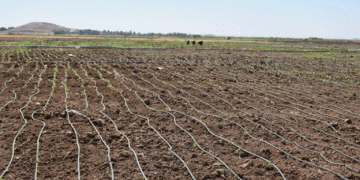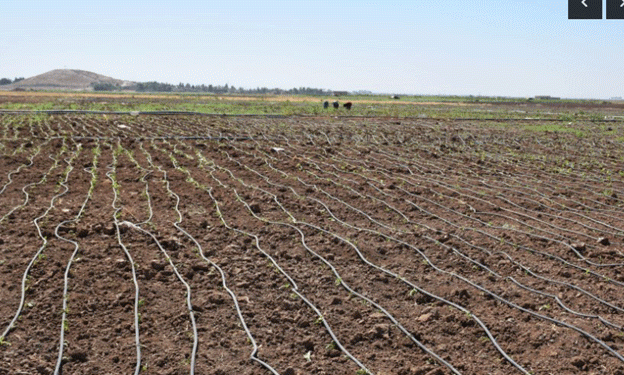The northern and eastern regions of Syria, particularly the fertile Jazira area, have long been known for their agricultural abundance. In this period of the year, vegetable farmers are hard at work harvesting a diverse range of autumn crops that will soon reach local markets, helping ensure food security and self-sufficiency. Alongside staple crops like wheat, barley, cotton, and corn, vegetables play a vital role in the region’s agricultural output, making it a significant contributor to the local economy.
Agricultural Prowess of Jazira Region
Jazira is one of the richest agricultural regions in northern and eastern Syria. The towns of Tirbe Spî and Amuda stand out for their extensive vegetable cultivation during the summer, fall, and winter seasons. Farmers in villages like Tel Sha’ir, located in the western rural area of Tirbe Spî, manage vast farmlands—up to 1,000 dunams (about 100 hectares)—dedicated to vegetable production. This area has been called the “food basket” of the province due to its prolific output.
Since 2005, Tel Sha’ir has been at the forefront of adopting modern agricultural practices, such as tunnel farming, which allows for year-round cultivation. The tunnel system enables farmers to grow crops in controlled environments, extending growing seasons and protecting plants from harsh weather conditions.
Fall Harvest and Winter Preparations
With the arrival of fall, the farmers are busy harvesting vegetables like eggplant, red and green peppers, cabbage, cress, and cucumbers. These crops are commonly stored for winter use and are central to traditional Syrian dishes. For instance, eggplants harvested in the fall are often used to make makdous, a popular winter preparation of stuffed, pickled eggplants.
Arif Latif, a farmer from the region, highlights the importance of winter planting, which includes crops such as onions, parsley, and lettuce. According to Arif, winter farming has distinct advantages over summer and fall farming due to the natural irrigation provided by rainfall, which reduces the need for costly irrigation systems and brings down the overall cost of production. This, in turn, helps stabilize local market prices, contrasting with the higher prices of imported vegetables.
In 2024, local markets have benefited from abundant vegetable harvests, keeping prices within reach for consumers. For example, the price of eggplants, essential for makdous preparation, has remained affordable at 4,000 Syrian pounds per kilogram. The ability to supply locally grown vegetables at reasonable prices has strengthened the region’s self-sufficiency and reduced reliance on imported goods.
The Need for Agricultural Support
Despite their successes, farmers in the region face challenges, particularly when it comes to resources for irrigation. Arif Latif has called on the Agriculture and Irrigation Directorate to provide additional support, particularly in the form of increased allocations of diesel fuel, which is essential for powering water pumps and irrigation systems.
The Directorate of Agriculture and Irrigation, through local agricultural departments and committees, has been working to support farming areas by providing specialized diesel fuel for irrigation purposes. However, the demand for more resources remains high as farmers look to maximize their yields and maintain production levels through both wet and dry seasons.
Vegetable farming in northern and eastern Syria, especially in the Jazira region, is a cornerstone of local food security. The dedication of farmers, coupled with innovative practices like tunnel farming, has resulted in abundant harvests, benefiting local markets and ensuring a steady supply of fresh produce. However, continued support from agricultural authorities, particularly in the form of irrigation resources, will be crucial for sustaining these achievements and advancing the region’s agricultural potential. As the region gears up for winter planting, the ongoing efforts to balance self-sufficiency with the challenges of a changing agricultural landscape are more important than ever.































